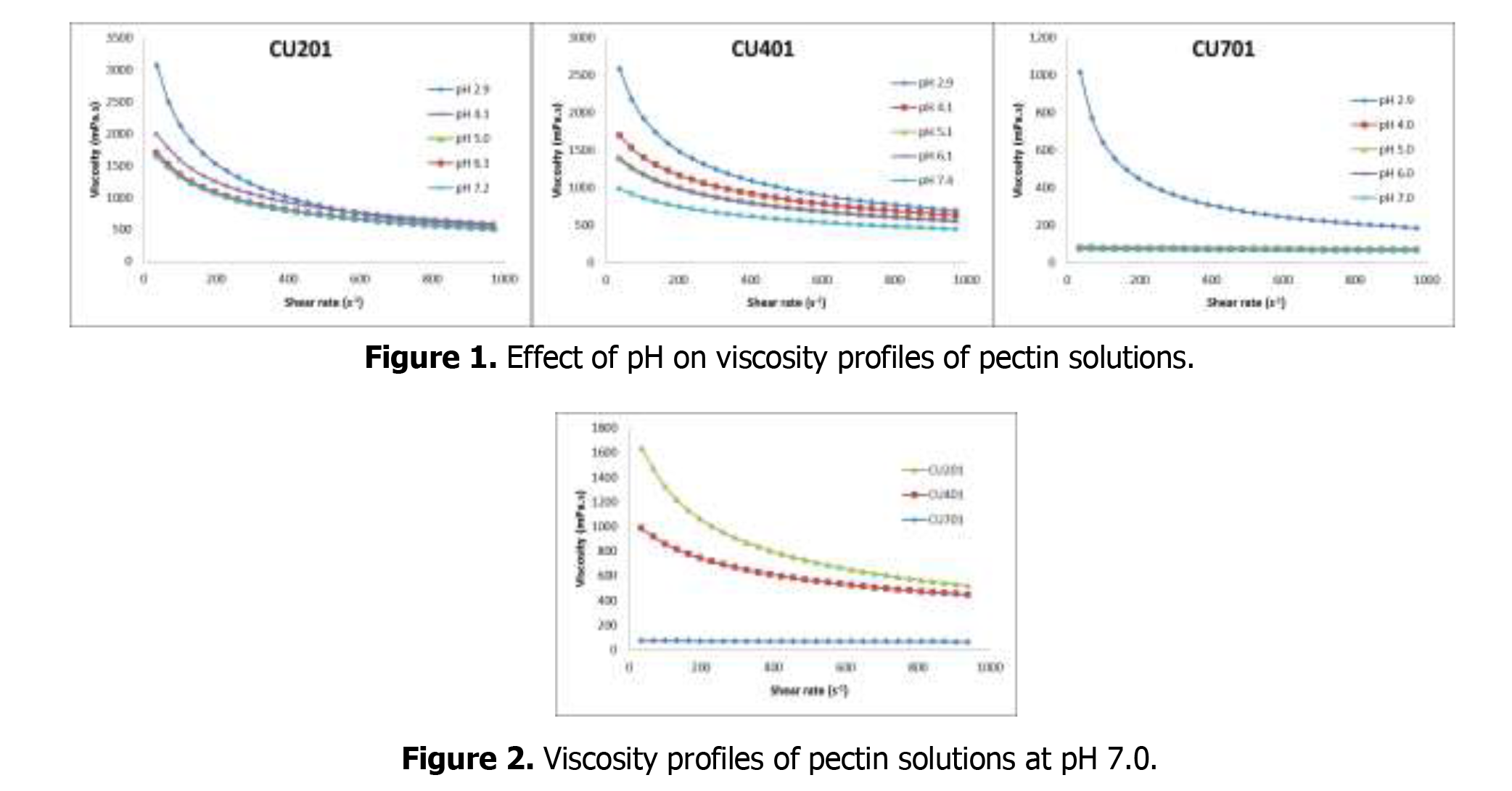Influence of pH on solution and solid-state properties of citrus pectin
Keywords:
Pectin; drug delivery; pH; rheologyAbstract
Pectin has been increasingly accepted for pharmaceutical applications including targeted drug delivery due to its biodegradability. For this purpose, the physicochemical characterization of pectin is important for fabrication of dosage forms. The present study focused on the consequence of pH on the properties of pectin. Citrus pectin, including high methoxyl pectin (CU 201, CU 401) and low methoxyl pectin (CU 701) were prepared at different pH and comparatively evaluated for their solution and solid-state properties. The results indicated that rheological behavior was depended on pH and grade of pectin. As increasing pH from 2.9 to 4.0, the viscosity of pectin solutions was significantly decreased. However, the low methoxyl pectin was less sensitive to the increment of pH from 5.0 to 7.0. Regardless of pH, the high methoxyl pectin showed shear thinning behavior while the low methoxyl pectin demonstrated Newtonian flow except for pH 2.9. The results suggested the pH dependent structural change of citrus pectin, especially for low methoxyl pectin, which was later confirmed by the results from powder X-ray diffractometry. The knowledge obtained from this research provides the basic knowledge for the specific selection of pH and grade of pectin in fabrication of drug delivery systems.


